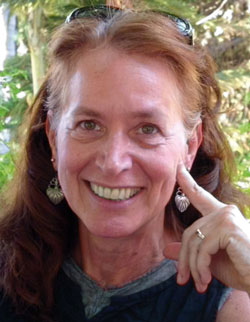Joyful Musings
By Joy Birnbach Dunstan,MA, LPC, MAC
What Was Your Name Again?

For most of us, the key to keeping our mind sharp and intact is regular use. Just as your body needs exercise to remain healthy and fit, your mind needs practice to stay sharp. It is normal to take a bit longer to remember things, especially considering how much more knowledge and memories you have to sift through than a young person. It is also normal to have difficulty learning new things (like Spanish!) or focusing on more than one thing at a time. But the more you keep active and learning, the better your brain works.
The single most important thing you can do to minimize memory lapses is to focus your attention on what you really want to remember. Much of what we call forgetting is a result of not registering information in the first place. If you need to remember something later, pay closer attention now.
One handy way to lock in new information is to repeat and associate it. When John introduces himself to you, respond with “Hello, nice to meet you, John.” Link the name with something memorable: perhaps it’s the same name as your uncle, or maybe you’re meeting Gail the day after a storm with gale-force winds.
Once you’ve registered information, there are numerous tools you can use to retain and recall it later. Incorporating imagery and associations to form vivid mental pictures helps cement memory. You might remember your grocery list, for example, by placing the items, in your imagination, in the rooms of a house. Visualize eggs on the front doormat, sausages hanging on the chandelier, butter melting in a dish by a sunny window. The more ludicrous the images, the more likely you are to remember them.
Physical tools and props are external aids that help trigger memory. Written examples include keeping lists, calendars, and post-it notes. Besides having your note to refer back to, the action itself of writing things down assists memory by focusing your attention and organizing your thoughts.
Organize your environment to rely less on memory. For example, habitually hanging your keys on a hook by the door helps you find them easily when you need them.
Object cues are the manipulation of an ordinary object in an unusual way so as to jog your memory. In my house, we know that if the big metal spatula is still lying on the counter, the barbecue needs to be turned off. Another example would be putting your watch on the opposite arm to remind you to stop at the post office.
More than anything, worry and negative self-talk impair memory. If you tell yourself things like “I have such a bad memory” or “There’s no way I’ll remember this,” you’re setting yourself up to forget. Pay attention and focus on ways to remember. And when you do inevitably forget something, soothe yourself by remembering what Albert Schweitzer once said: “Happiness is nothing more than good health and a bad memory.”
Editor’s Note: Joy is a practicing psychotherapist in Riberas. She can be contacted at joy@dunstan.org or 765-4988.
- April 2024 – Issue - March 31, 2024
- April 2024 – Articles - March 31, 2024
- April 2024 - March 31, 2024




